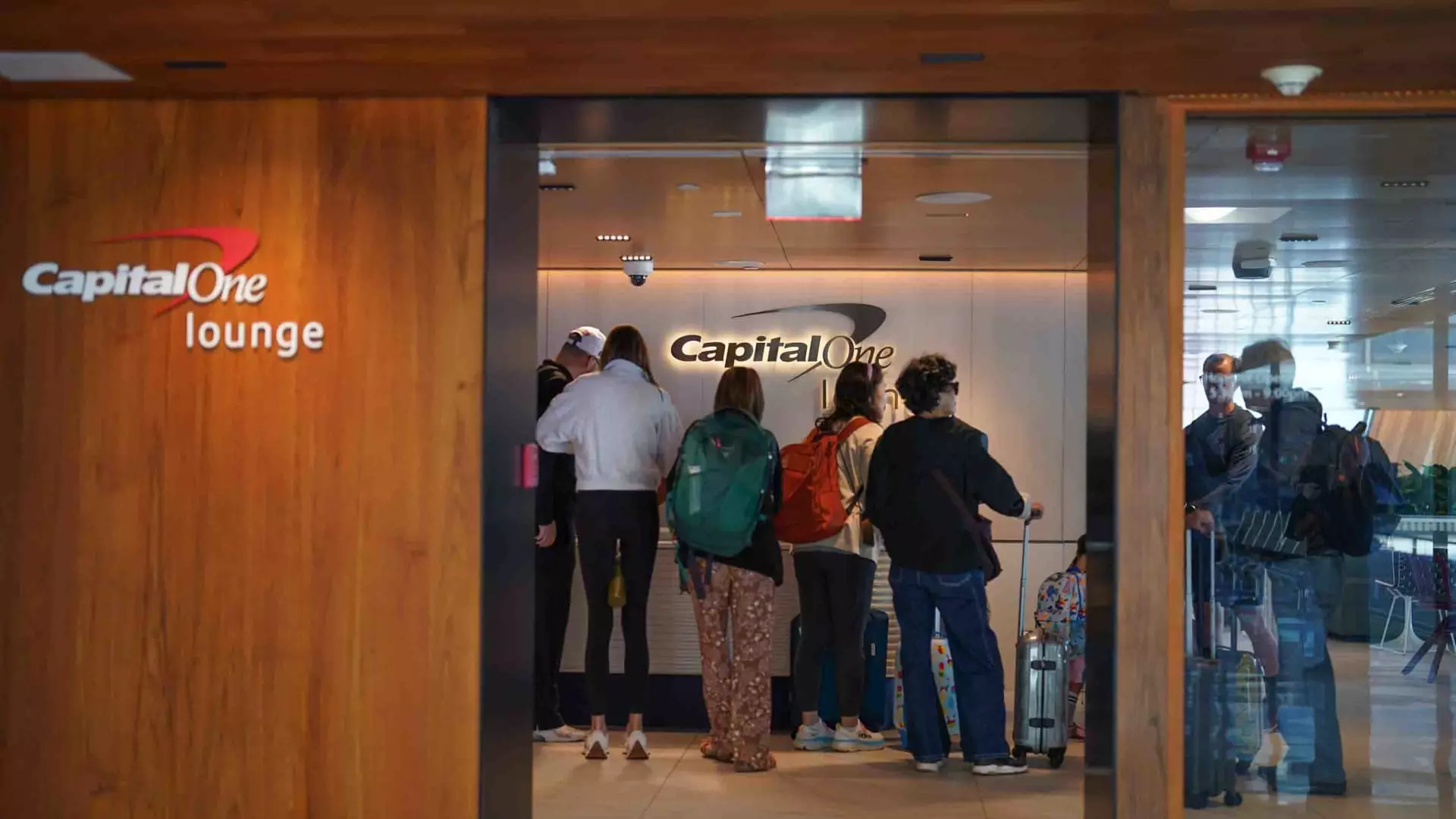In an age where budget airlines proliferate and base fares flirt with all-time lows, true affordability often remains elusive. While ticket prices decline enticingly, additional costs emerge with unsettling frequency. Recent shifts in the air travel landscape signal a worrying trend: the price of experiencing comfort at airports is soaring. The latest example comes from Capital One, a financial giant that has taken a proactive stance against overcrowded airport lounges. Beginning February 1, holders of the Venture X and Venture X Business cards will no longer enjoy complimentary guest entry. Instead, they will face steep fees for bringing loved ones along, inciting a wave of frustration among frequent travelers.
Dimmed Privileges: The New Norm for Lounge Access
Capital One’s decision to introduce additional fees and requirements reflects a significant shift in the way credit card companies view and manage their lounge offerings. Cardholders can now expect to pay a staggering $125 annually for each additional authorized user and hefty guest fees ranging from $25 to $45 per visit. This regulatory tightening aims to balance overwhelmed lounges and maintain a sense of exclusivity among premium service offerings. However, the imposition of financial barriers to familial bonding during travel strikes at the very heart of what many valued about these spaces: the opportunity to share comfort and relief from the hustle of airports.
Meanwhile, the standards for complimentary guest access have been considerably elevated. To enjoy these privileges without paying, cardholders must now spend an astronomical $75,000 annually—a threshold that effectively transforms travel into a privilege for only the wealthiest clients. This strategy, eerily reminiscent of maneuvers by other credit card giants like American Express, raises ethical questions about the evolving definition of access and privilege in an increasingly stratified society.
Riding the Coattails of Success
Indeed, the paradox is striking: as lounges burgeon in size and allure due to their growing popularity, they simultaneously become victims of their own success. Henry Harteveldt from Atmosphere Research Group aptly captures this phenomenon, likening lounges to “overrun public areas of the airport.” What was once a serene sanctuary for weary travelers has transformed into a crowded arena reminiscent of shopping malls during holiday sales—a disheartening reality amid one of travel’s most significant trends.
These changes naturally elicit mixed feelings. While revenue from fees propels lounge operators to enhance their offerings, the erosion of complementary experiences compromises the very essence of why these lounges were created. They originally evolved not only as buffering zones against chaotic terminals but as spaces where travelers could unwind with family and friends. Now, they are cautionary tales of exclusivity gone awry.
The Hypocrisy of Loyalty Programs
Offers and perks that once seemed generous now ring hollow against the backdrop of escalating expectations and costs. The ideology of reward points, championed by travel and credit card companies alike, leaves many feeling trapped in a cycle of consumption that fuels corporate profit while rendering personal connection unaffordable.
Airlines have been equally belligerent in their pursuit of exclusivity, tightening lounge access and implementing caps on visits, much to the chagrin of loyal customers. Delta Air Lines’ recent policies decimate the notion of unlimited access while simultaneously venturing into the realm of premium customer experience. Ironically, the ‘exclusive’ experiences that these businesses tout come with a heavy price, stripping away the vividly personal experiences that should encapsulate travel.
The True Cost of Progress
As we witness the shifting dynamics of air travel, it begs the question: At what cost does this trend of ‘luxury’ fly? While the allure of lounge access promises a curated experience, the reality reveals an intricate tapestry of financial barriers designed to confine benefits to those who pile up either significant wealth or relentless spending.
The transformation of airport lounges might herald a new era in travel, but it stands on precariously exclusive ground—devoid of authenticity and punctuated by tension between accessibility and privilege. As transportation entwines more deeply with social stratification, individuals must grapple with not only where they stand within this newly defined hierarchy but the implications of their choices in an industry determined to profit from the allure of comfort in an ever-busier world.

